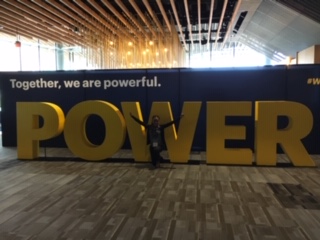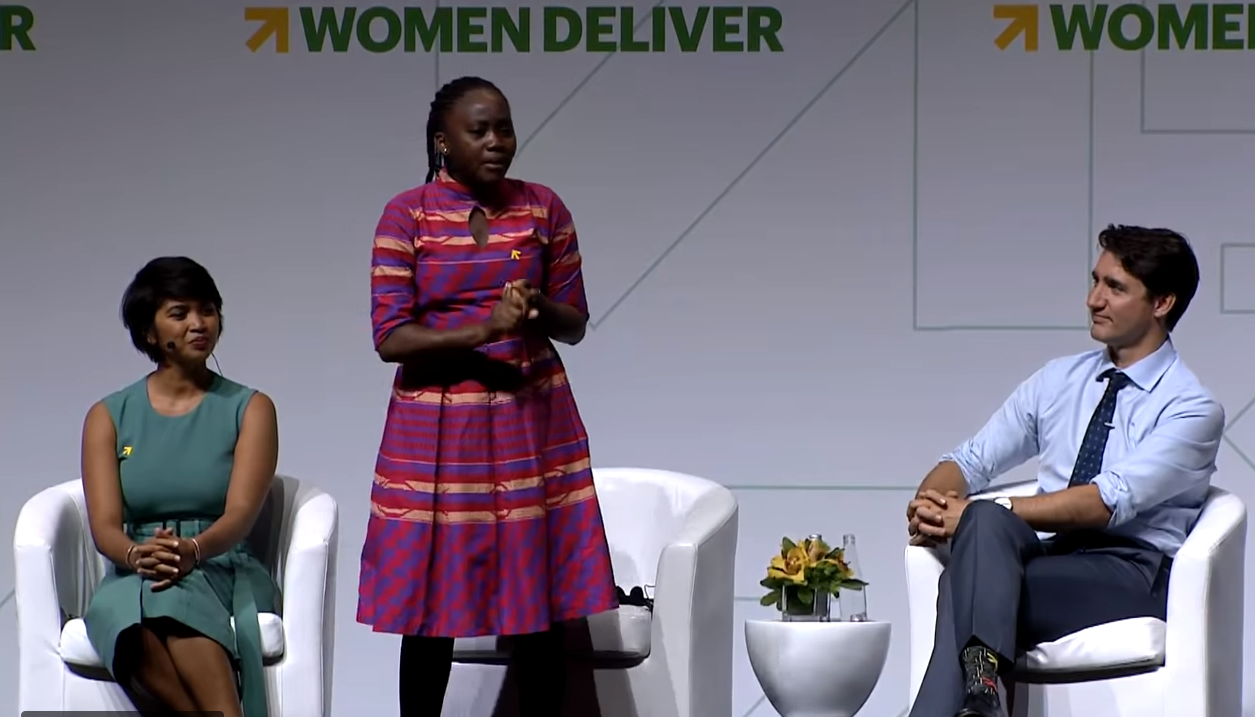 A lasting memory from the Women Deliver conference in Vancouver in early June was the abundance of young people. Katja Iversen, CEO of the gender equality and female health organisation, said that their presence was a deliberate move and has been a feature of the event since the inaugural conference in 2007.
A lasting memory from the Women Deliver conference in Vancouver in early June was the abundance of young people. Katja Iversen, CEO of the gender equality and female health organisation, said that their presence was a deliberate move and has been a feature of the event since the inaugural conference in 2007.
Women Deliver runs a young leaders programme with a digital university where advocates from around the world receive training. In the last recruitment drive there were 3000 applications for the 300 places. Past and present young leaders are invited to the three yearly conference, many on scholarships.
“The conference is not just about the already leaders. It’s really people from all walks of life,” said Iversen.
 There were some 1550 young people at this year’s event out of the 8000 attendees. Iversen said that including young people in every aspect of the conference—from organising the agenda to deciding who should speak at plenaries—brings new perspectives to proceedings. “It’s their world and they have a vested interest. If they’re not in on the decisions they don’t get the world they want,” she said.
There were some 1550 young people at this year’s event out of the 8000 attendees. Iversen said that including young people in every aspect of the conference—from organising the agenda to deciding who should speak at plenaries—brings new perspectives to proceedings. “It’s their world and they have a vested interest. If they’re not in on the decisions they don’t get the world they want,” she said.
On the question of what she would say to other conference organisers and the involvement of young people, Iversen was unequivocal—not doing so was unethical. “Do it. It’s as simple as that. It’s the only right thing for them. Because if you’re serious about what you do you involve young people and if you’re focused on the future you involve young people. It takes effort and it takes time and you can never do it as a token. It’s also about sharing the power. Everybody gets more powerful from it,” she said.
Power was the theme of this year’s conference and there were some impressive examples of young leaders who had got the memo.
Anyone who attended the opening plenary knows that Natasha Mwansa, a 19 year old student from Zambia, is a president in the making. She out-charmed Canada’s prime minister Justin Trudeau, himself an effusive charmer, and stole the limelight on the stage that she shared with three other presidents: Kenya’s Uhuru Kenyatta, Ghana’s Nana Akufo-Addo, and Ethiopia’s president Sahle-Work Zewde.
Mwansa stood up on stage and demanded to be heard. “One thing that has to be emphasised is that there is no way anything is going to be done for us without us because that is against us. We are not going to be just beneficiaries,” she said and berated governments for allocating just 0.1% of their budgets on young people and gender equality.
She continued, “We need increased budget allocations to do with young people and gender equality and female empowerment. We can’t have girls being married off, we can’t have girls not accessing education, we can’t have girls not being able to take care of themselves every time of the month simply because of stereotypical behaviour. We need gender equality and we need this reflected in national priorities.

“We need proper capacity building mechanisms to help young people make decisions about their health. We need social accountability. I want to live in a world where I am not just watching the news and my president assumes what I want as a girl or as a young person. I want to tell him what I want and I want him to bridge the gap between what we want and what is being provided and what is promised and what is done. Politicians can talk but we need to be able to hold them accountable. Action is what we need right now, not talk. It’s not enough to have youth friendly corners—we need a youth friendly and responsive system that is investing in young people. It will reap great benefits.”
Another passionate young delegate was Donya Nasser, a youth advocate for the International Planned Parenthood Federation, who spoke at a session on sexual reproductive and health rights. Asked what meaningful engagement with young people looked like she said it meant putting young people at the forefront of conversations and not just allotting them a five minute spot at the end of discussions. “Being conscious and international is really the most important step—and knowing that it’s alright to take a step back and let the young people forward. It’s about relinquishing control.”
Zosia Kmietowicz is news editor at The BMJ. You can follow Zosia @zosiamk.
